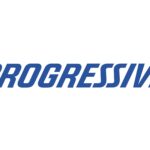Northeast State Have Uneven Success Attracting Captives
States across the Northeast continue to look at captive insurance companies as a potential source of new business — and tax revenue — but the continued growth of captives is treating some states better than others.
Vermont — long a bastion of the captive industry inside the U.S. borders — saw continued growth in 2010, as it added 33 new captive insurers and saw the total of captives licensed by the state eclipse 900.
“It is very gratifying to see the growth in new licenses in 2010,” said Dan Towle, director of financial services for Vermont’s Department of Banking, Insurance, Securities and Health Care (BISCHA). “We are continuing to see companies take control of their own risk by forming captive insurance companies, despite the soft commercial insurance market.”
New captives formed in the state include 19 pure captives, nine special purpose financial captives, four new risk retention groups and one industrial insured captive. The companies forming captives in the state include corporations that are household names: NBC Universal, PricewaterhouseCoopers, Aetna, Procter & Gamble, Crowe Horwath, Towers Watson and Nationwide Financial Services.
The health care industry is one of the fastest growing sources of new captive insurance formations, according to BISHCA. Vermont saw new healthcare captives formed by, among others, EmblemHealth, Albert Einstein Healthcare Network, a group of Midwestern Physicians, Nursing Homes & Home Healthcare Agencies, and a group of New Hampshire Hospitals.
New Gov. Peter Shumlin vowed that “Vermont will not rest on its laurels and we remain committed to being the gold standard of domiciles.”
Vermont is the largest captive insurance domicile in the U.S. and the third largest in the world, with an excess of $17 billion in gross written premium estimated in 2010.
But other states, too, are getting into the captive domiciling act.
Maine recently licensed First Maine Captive, a captive insurance company formed by three workers’ compensation group self-insurers in the state. The captive will be administered by R.A. Peterson Associates, based in York.
It is the first captive domiciled in the state since 2003. Maine has allowed captives since 1997. State Insurance Superintendent Mila Kofman credited recent changes to Maine’s captive insurance law as making the state “more attractive for captive insurance companies.”
New Jersey is also planning to enter the captive fray. Garden State lawmakers recently passed a new bill that will allow captive insurers in New Jersey.
The legislation makes the Garden State a captive insurance domicile, and would take effect 90 days after Gov. Chris Christie signs it, which is he is expected to do soon.
Gregg Sgambati, president of the recently formed New Jersey Captive Insurance Association (NJCIA), called the measure “a notable step forward in New Jersey’s commitment to lay the foundation for organizations to recognize New Jersey as a great place to do business.”
The group is planning a summit for April and an annual conference later this year in Atlantic City for would-be captives interested in the Garden State.
The bill was one of several economic development measures passed by New Jersey lawmakers as part of a larger economic growth campaign.
But despite politicians’ hopes, experience shows that the mere existence of captive laws themselves doesn’t necessarily mean captives’ premium taxes will flow.
Connecticut is one such example. The Nutmeg State — which is home to some of the industry’s largest insurers — passed legislation two years ago that would have allowed it to regulate captive insurance companies. It was hoped at the time that the new law, modeled after Vermont’s, would help usher in a wave of captive insurers and spur some economic development.
Given its proximity to Boston and New York — other major insurance hubs — as well as an ample supply of labor skilled in insurance matters, it was thought that Connecticut would be a logical location for captives to form.
It’s the same argument made by supporters of the New Jersey bill.
In Connecticut, however, that has yet to materialize. In two years, not a single captive has formed in the state.
Even New York, which has similar captive legislation and lots of insurers, has licensed only 48 captives — small relative to the success seen by Vermont. Rhode Island, too, has failed to attract any captives despites having laws on its books that allow them.
Topics Carriers Legislation New Jersey Connecticut Maine Vermont
Was this article valuable?
Here are more articles you may enjoy.


 P/C Premium Growth Likely But Profits Delayed Until 2025: Forecast
P/C Premium Growth Likely But Profits Delayed Until 2025: Forecast  Study Urges Rethinking of Disaster Management in Era of Compounding Events
Study Urges Rethinking of Disaster Management in Era of Compounding Events  Progressive Q2 Net Income Skyrockets Over 320%
Progressive Q2 Net Income Skyrockets Over 320%  Soccer Officials Arrested After Melee That Damaged Hard Rock Stadium in Miami
Soccer Officials Arrested After Melee That Damaged Hard Rock Stadium in Miami 


